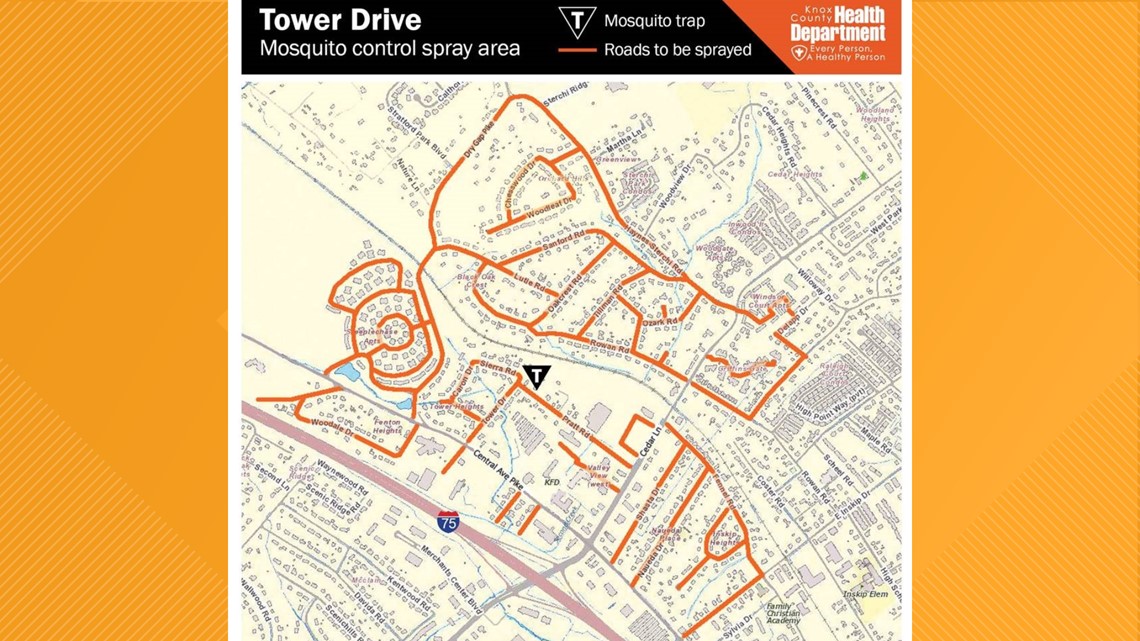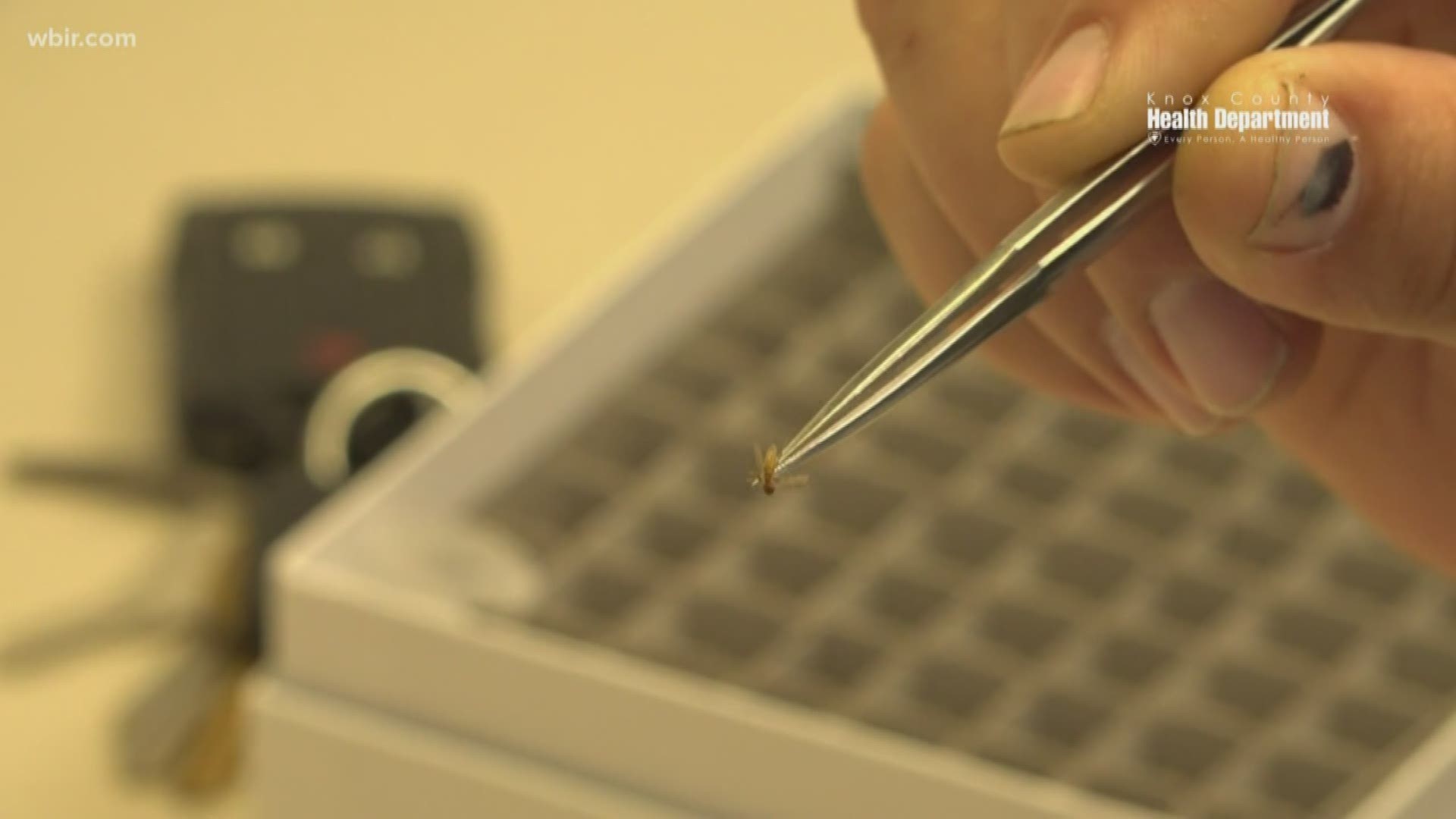KNOXVILLE, Tenn. — The Department of Health said latest lab reports confirmed the first presence of West Nile virus in Culex mosquitoes in the Tower Drive area of north Knoxville.
Following Centers for Disease Control and Prevention protocol, the Knox County Health Department is required to spray for mosquitoes in this area to reduce the Culex mosquito population and the risk of WNV spreading to humans.
Tower Drive spray area:
Aurora Lane; Charlene Lane; Woodale Drive; Old Central Avenue Pike; Steeple Chase Apartment complex; Pratt Road; Tower Drive; Lawrence Road; Shasta Drive, Naveda Lane, Naveda Drive, Laurel Circle, Heather Lane, Fennel Road from Cedar Lane to E. Inskip Drive, Caron Drive; Sierra Road; Chesswood Drive; Woodleaf Drive; Sanford Road; Lutie Road; Oakcrest Road; Tillman Road; Rowan Road south to Henrietta Drive; Henrietta Drive east to Willoway Drive; Delapp Drive; and Griffins Gate Lane were treated Thursday, Aug. 15.
Follow-up spraying is scheduled for Thursday, Aug. 29.


Signs will be posted in the affected neighborhoods to alert residents, who are asked to stay inside during spraying and keep pets inside or in the backyard.
To reduce the risk of contracting WNV and other mosquito-borne diseases, KCHD recommends:
- Applying repellants to skin often; these can include lotions, liquids or sprays.
- The CDC recommends the use of Environmental Protection Agency (EPA)-registered repellants containing one of the following ingredients: DEET, picaridin, oil of lemon eucalyptus, para-menthane-diol, 2-undecanone or IR3535. The duration of protection varies by repellant.
- Read labels on products to determine when reapplications are necessary for optimal protection.
- Wearing socks and long, loose, and light-colored shirts and pants.
- Treating clothing with permethrin or purchasing pretreated permethrin clothing.
- Disposing of, regularly emptying, or turning over any water-holding containers on your property such as tires, cans, flower pots, children’s toys and trash cans to reduce mosquito habitats.
- Using larvicides, such as mosquito torpedoes or mosquito dunks, to prevent mosquito proliferation in large water-holding containers, including bird baths and garden water features. If used properly, larvicides will not harm animals.
To reduce the risk of mosquito-borne disease, KCHD conducts a West Nile virus control program during summer and fall months.
The health department said as the weather warms each spring, public health professionals begin a weekly process of trapping and testing mosquitoes for WNV, a mosquito-borne disease which can infect humans, horses and birds.
From March until the first frost, KCHD also uses larvicides in areas with standing water to prevent mosquito proliferation.
These efforts are in addition to KCHD’s work to assess and monitor for other mosquito-borne illnesses. More information is available by calling 865-215-5200 or visiting knoxcounty.org/health.

